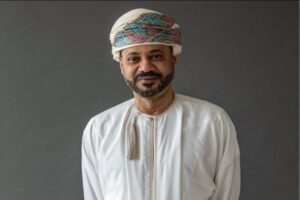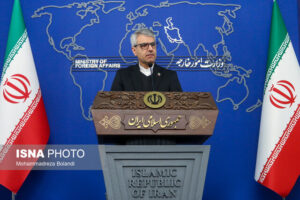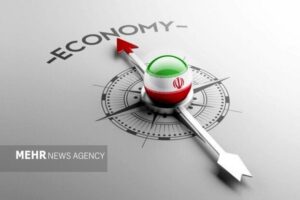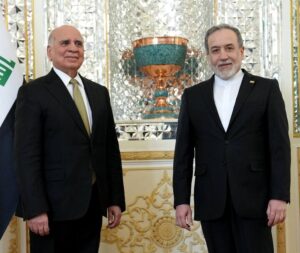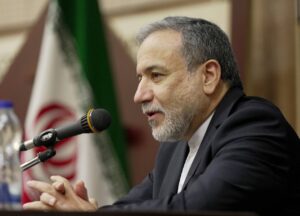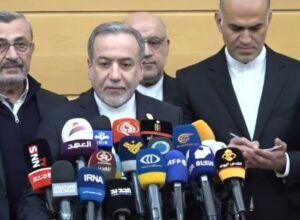Question: Well, joining us now on Al Jazeera is Iran’s Foreign Ministry spokesman, Ismael Baghaei. He’s live from Tehran. Thank you so much, Mr. Baghaei, for being with us on Al Jazeera. So, President Trump is insisting that Tehran’s nuclear program has been completely destroyed. He said, quote, “The US strikes were a perfect operation that obliterated Iran’s nuclear capabilities.” What’s your response to that? What’s the initial damage assessment at your nuclear sites?
Mr. Baghaei: I think what matters here—and should not be overshadowed by beautiful words and different positions taken by the United States—is the fact that we witnessed a detrimental blow to international law, to the NPT regime, and to the moral ethics of the international community. So, what matters most here is for the international community to understand that the US military strikes were an act of aggression against Iran’s territorial integrity and national sovereignty. That matters most.
Question: Okay, understood. But when the US president says that Iran’s nuclear program has been completely destroyed, do you reject or accept that?
Mr. Baghaei: What I have to say is that Iran’s right to peaceful nuclear energy remains intact. Iran has every right under the NPT, under Article 4 of the NPT, to enjoy using nuclear energy for peaceful purposes, and Iran is determined to preserve that right under any circumstances.
Question: Okay, can you tell us what’s left of the Iranian nuclear program and the uranium stockpiles? Has Iran been able to salvage any of the uranium stockpiles before the US bombing?
Mr. Baghaei: As I said, I think these are secondary issues. The primary concern of the international community has to be to condemn this lawless act by the United States. I think it is really a very bad sign that many people across the globe are trying to underestimate the depth and gravity of the American act of aggression against Iran, and now they are talking about the level of strikes or its effectiveness. The international community has to understand that what was done by the United States against Iran was a horrible blow to international diplomacy, to international law, and to international ethics.
Question: Understood, sir. I just want to insist on the fact that the IAEA has called on Iran to allow nuclear inspectors at the site, as this ceasefire with Israel is now in place. But instead, I understand Iran is considering cutting cooperation with the UN nuclear agency. Can you tell us why and why you would not allow inspectors on the ground to verify the facts?
Mr. Baghaei: Don’t you think it is only natural for the representatives of a nation that has come under an egregious act of aggression to reconsider the way they have been dealing with the IAEA? Yes, there has been a draft bill by our parliament today—it has been adopted—and it talks about suspending our cooperation with the IAEA. It talks about suspending, not putting an end to, the cooperation, with two conditions: first, that Iran’s inalienable rights under the NPT, under Article 4 of the NPT, must be recognized. The second thing is that the security and safety of our nuclear installations, our scientists, and our people should be preserved. So, I think it’s only logical—it’s a matter of logic and law—because if we are going to be a responsible member of the NPT, we have to be able to enjoy the rights that are afforded to every member state of this treaty.
Question: Speaking of the NPT, sir, you also talked about Iran discussing suspending its participation in the Nuclear Non-Proliferation Treaty. Is that something that’s been seriously considered? Will Iran pull out of the NPT after this war?
Mr. Baghaei: As I said, the draft bill of the parliament talks about suspending our cooperation with the IAEA. It doesn’t talk about suspending our participation or membership in the treaty. And I think the bill again is in line with the parameters of the NPT because the bill talks about guaranteeing our rights under the NPT.
Question: You’re right under the NPT, and you’ve said this before, sir, that Iran has the right to enrich uranium. Can you tell us—I’m going to insist on this a little bit more—what remains operational today as far as Iran’s nuclear program?
Mr. Baghaei: I have nothing to add on this matter because it’s a technical issue. Our Atomic Energy Organization and other relevant agencies are working on that. But yes, our nuclear installations have been badly damaged—that’s for sure—because they have come under repeated attacks by Israeli and American aggressors. Again, what matters most for the people in the region and beyond is to really understand the depth of this lawlessness that happened for the past 12 days against Iran.
Question: President Trump also said today while he was at the NATO summit that, quote, “We’ll end up having somewhat of a relationship with Iran after this conflict.” Are you open to that now that your country is no longer under fire—being attacked, as you say? Are you willing to negotiate with the US?
Mr. Baghaei: We have been hearing all sorts of contradictory remarks for the past two or three months. There have been many contradictions within the American bureaucracy, within the American establishment. While they have been talking about diplomacy, they green light the Israelis to attack Iran only two days before our scheduled meeting in Muscat. My nation came under an act of aggression by Israel. So, has there remained any trust in them? Because they are talking about different things, acting differently, and now they have to be held accountable for the aggression that they have committed against my country in collusion with the Israelis. And that’s something that our people want—as the government, they expect the international community to hold the aggressors accountable before anything else.
Question: So, are you saying that you’re no longer interested in talking to the Americans?
Mr. Baghaei: What I’m trying to say is that they torpedoed diplomacy. As far as Iran is concerned, we have said diplomacy never ends—even during the height of the imposed war against Iran, we continued talking to different actors in order to save lives and to make sure that our national security is protected. But the point is that the other parties are talking about dialogue and diplomacy while at the same time committing acts of aggression. These contradictions have only created more and more problems.
Question: Okay, so what preconditions, if any, would Iran require for any future negotiations?
Mr. Baghaei: For the time being, we are focused—just one day after the stoppage of the aggression by the Israelis—on our security, on our people, because people are outraged at what happened. So, at this time, I think we have nothing to say about those contradictory remarks regarding diplomacy or negotiations because we have to make sure whether the other parties are really serious when they’re talking about diplomacy or if it is again part of their tactics to create more problems for the region and for my country.
Question: Okay, let me ask you, sir, about the ceasefire—briefly—between Israel and Iran, which is now in place and is holding. What are the key elements required to maintain this ceasefire, this truce? Are there any active diplomatic channels that are supporting this truce behind the scenes?
Mr. Baghaei: As you see, we were approached by Qataris to stop this war—this imposed war against Iran. We didn’t start this war, and we agreed to stop after they approached us, after the Americans approached Qatar. So, it is very clear: we have been under attack, we have been subjected to an act of aggression. So, we will defend in case there is any act of military strikes, any act of aggression against Iran.
Question: Mr. Baghaei, one last question if I can. Iranian officials have projected an image of strength and stability—even victory—in the face of this conflict. As you say, Iran was attacked by Israel, but the toll has been significant for Iran: over 600 casualties, widespread destruction of military and civilian sites. We don’t yet know the extent of the destruction of the nuclear sites. When Iranian officials claim victory today, what does victory mean? What does victory look like? What did Iran achieve realistically in this conflict?
Mr. Baghaei: We suffered a lot—that’s for sure. Our people were massacred by Israeli aggression; that’s war crimes against humanity, and they have to be held accountable. But the point is that our people showed that they are resolute in defense of their national security and sovereignty. And I think, given the fact that this imposed war was orchestrated, planned, and operationalized with the help of Americans, it means that we had to resist against an attack by the United States, by Israelis—by two nuclear-armed actors—and the fact that they were supported by some other actors as well across the Western Hemisphere. So, it means that we were able, as a nation, to defend our identity, our security, and at the end, we had to make them—they had to submit to the will of the Iranian people through resistance—to approach us and ask for this ceasefire.
Question: So, they approached you and asked you for the ceasefire—just to confirm?
Mr. Baghaei: We were approached by our friends from Qatar. And of course, as I said, we have never welcomed war. We are a nation of peace-loving people. No responsible actor, no responsible state in our region welcomes war. It is only one actor in our region that has always been trying to wage war against the people in our region. They are committing, as you know, genocide in Gaza for the past two years. They are occupying the lands of two Muslim countries—Syria and Lebanon—and everyone knows that they are warmongers that have no respect for international law, for international ethics, or morality. So yes, we, as a nation, were able to resist against this unjust war for the past 12 days.
Question: Mr. Baghaei, just one final question if I may. You mentioned Qatar, and the Qataris have expressed dissatisfaction at the attack on the American base here in Qatar, strongly condemned it, and said that this constitutes a scar in the relationship between Iran and Qatar today. What is Iran going to do to repair this relationship?
Mr. Baghaei: We have high respect for Qataris, and we attach significant importance to our good relations with Qatar. We have been good friends with Qatar during their difficult times, and Qataris have also been our good friends. We are good friends, basically, with all countries—the littoral states of the Persian Gulf. We have made it clear that the military strikes against Al Udeid had nothing to do with Qatar. We respect the territorial integrity and national security of Qatar. It was in exercise of our right of self-defense against American aggression against our peaceful nuclear installations. So, at the high level, our president talked to Qataris; our minister of foreign affairs did as well. We tried to clarify that what was done was against the American base in exercise of our right of self-defense. So, we are committed to our good-neighborliness policy with Qatar and other countries of the region. And I personally am really unhappy about any inconvenience that has been caused to our Qatari sisters and brothers as a result of this attack. But as we said, this self-defense operation was calibrated in defense of our rights under Article 51 of the Charter, in response to American aggression against our territorial integrity.
Question: Thank you so much for taking the time to speak to us, Mr. Ismail Baghaei, the Iranian Foreign Ministry spokesman, joining us there from Tehran. Thank you for your time.

